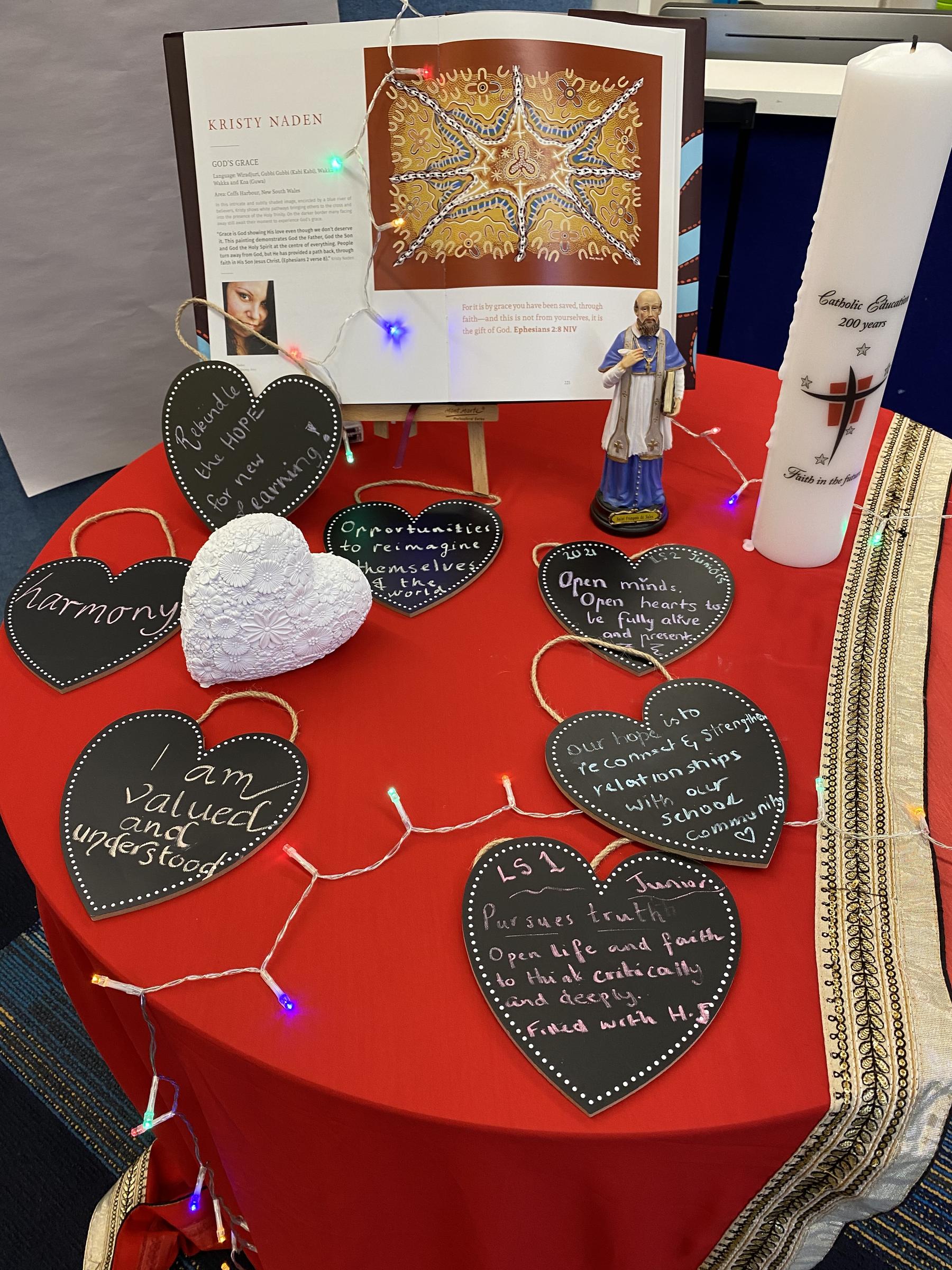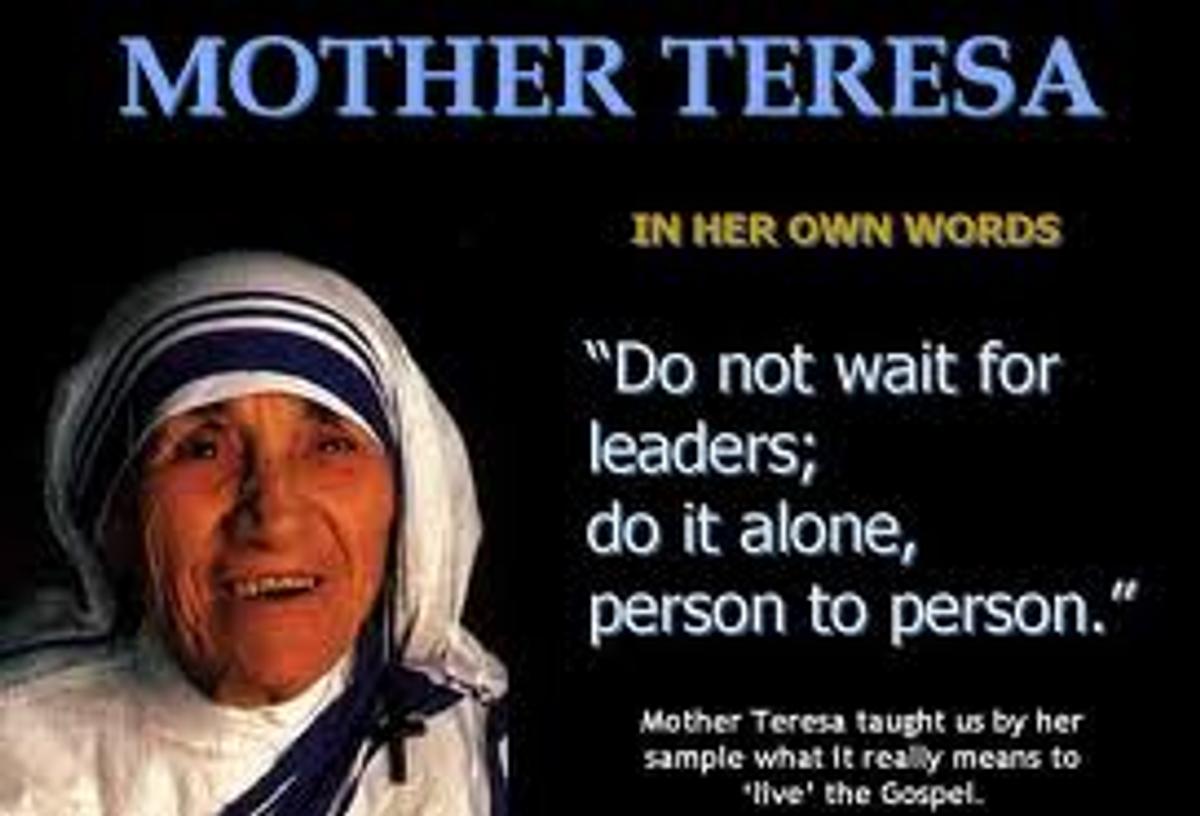Education in Faith

23rd Sunday in Ordinary Time - Year B
In the Gospel this week, the people brought to Jesus a deaf man who also had a speech impediment. They begged Jesus to heal the man. Jesus touched the man’s ears and tongue, and prayed that his ears be opened. Immediately, the man was healed.
Jesus ordered the people not to tell anyone, but they could not contain the good news of the man’s healing. The story is about Jesus’ healing power, and in it we find clues about our understanding of sacrament. The Church continues to celebrate the sacraments using physical means.
In the Sacrament of Baptism, water and oil are used to show the power of the Holy Spirit. In the Sacrament of the Anointing of the Sick, we are anointed with holy oil on the forehead and the hands. In the Eucharist, bread and wine become the Body and Blood of Christ. We are a sacramental people who believe that God’s grace is given to us through these physical signs.
In the Rite of Baptism we pray: The Lord Jesus made the deaf hear and the dumb speak. May he soon touch your ears to receive his word, and your mouth to proclaim his faith, to the praise and glory of God the Father. Amen.
Jesus taught that our words and deeds or actions toward others are what show us to be good people. God wants us to do good things with our lives, such as share our possessions, think kind thoughts even about those who hurt us, and be truthful.
Reflection
- Sometimes we all find it difficult to listen. Can you think of a time when you didn’t listen well to what someone was saying?
- Perhaps you were being asked to lay the table or make your bed, and you didn’t really want to do it. Perhaps you didn’t think what the other person was saying was important?
- What other reasons can you think of for not listening well to what people are saying?
- Sometimes we all find it difficult to speak up – especially if we see that someone is doing something wrong or if we are afraid of being laughed at. It can be hard to stand up for what we know is right. It can be hard to speak out for what we believe in.
- Can you think of a time when you knew you should say something but it was hard to do?
Let us Pray
God of love, open our ears to hear your word,
and open our hearts that we may always speak up for what is right.
Give us the courage to stand up and make our voices heard,
to speak out for a world where all people have the chance to live free.
We ask this through Christ our Lord,
Amen.
We also celebrate the feast day of Saint Teresa of Calcutta on September 5th.
This is her story
Mother Teresa of Calcutta, a tiny woman recognized throughout the world for her work among the poorest of the poor, was beatified October 19, 2003. Born to Albanian parents in Macedonia, Gonxha (Agnes) Bojaxhiu was the youngest of the three children who survived.
During her years in public school, Agnes participated in a Catholic sodality and showed a strong interest in the foreign missions. At age 18, she entered the Loreto Sisters of Dublin. It was 1928 when she said goodbye to her mother for the final time and made her way to a new land and a new life. The following year she was sent to the Loreto novitiate in Darjeeling, India. There she chose the name Teresa and prepared for a life of service. She was assigned to a high school for girls in Calcutta, where she taught history and geography to the daughters of the wealthy. But she could not escape the realities around her especially poverty, suffering and the overwhelming numbers of destitute people.
In 1946, while riding a train to Darjeeling to make a retreat, Sister Teresa heard what she later explained as “a call within a call. The message was clear. I was to leave the convent and help the poor while living among them.” She also heard a call to give up her life with the Sisters of Loreto and instead, to “follow Christ into the slums to serve him among the poorest of the poor.”
After receiving permission to leave Loreto, establish a new religious community, and undertake her new work, Sister Teresa took a nursing course for several months. She returned to Calcutta, where she lived in the slums and opened a school for poor children. Dressed in a white sari and sandals; the ordinary dress of an Indian woman, she soon began getting to know her neighbors, especially the poor, sick and getting to know their needs through visits.
The work was exhausting, but she was not alone for long. Volunteers came to join her in the work, some of them former students, became the core of the Missionaries of Charity. Others helped by donating food, clothing, supplies, and the use of buildings. In 1952, the city of Calcutta gave Mother Teresa a former hostel, which became a home for the dying and the destitute. As the order expanded, services were also offered to orphans, abandoned children, alcoholics, the aging, and street people.
For the next four decades, Mother Teresa worked tirelessly on behalf of the poor. Her love knew no bounds. Nor did her energy, as she crisscrossed the globe pleading for support and inviting others to see the face of Jesus in the poorest of the poor. In 1979, she was awarded the Nobel Peace Prize. On September 5, 1997, God called her home. Blessed Teresa was canonized by Pope Francis on September 4, 2016.
Sacramental News
Sacrament Levy
Please remember to pay your sacramental levy of $15.
Confirmation
- Complete the important notification for Confirmation on Google Classroom ASAP.
- Please remember to pick up the hessian pack from the front office at school to start the banner.
- Banners need to be handed in by Monday, 4th October.
Reflection Day
Tuesday, October 5th at St. Kevin’s with Rev Tony Ireland
Sacrament of Confirmation
October, Friday 15th at St. Kevin’s Church at 7 pm
God Bless
Rozeta Ambrose

